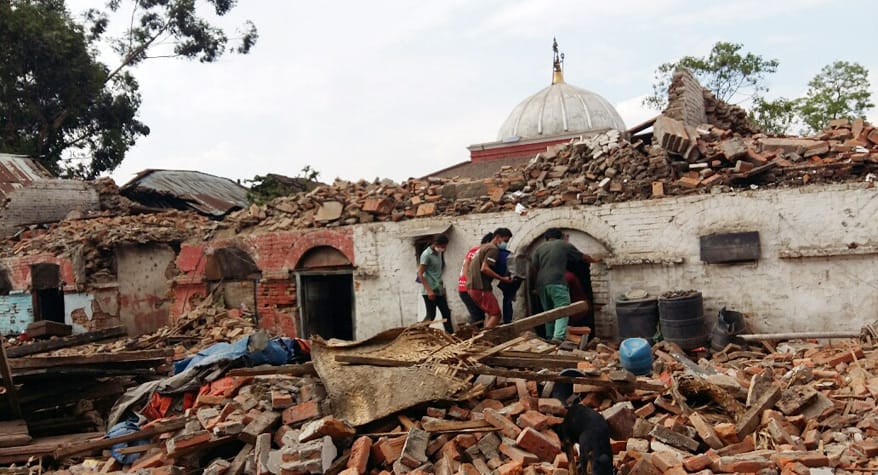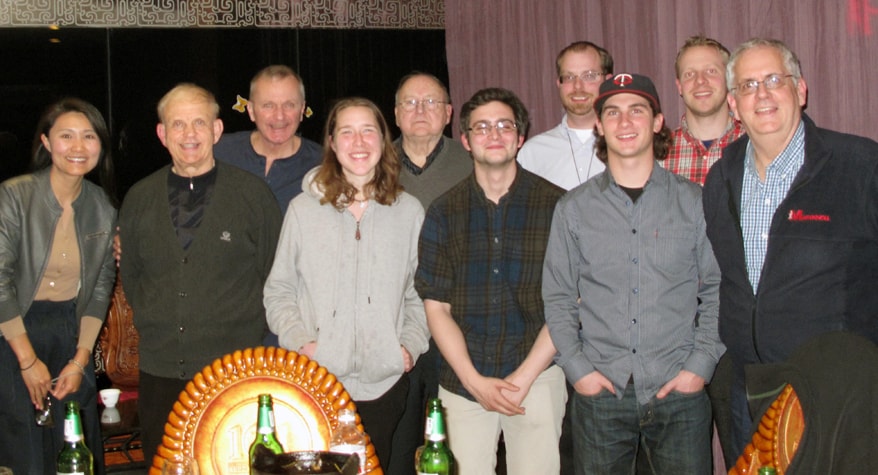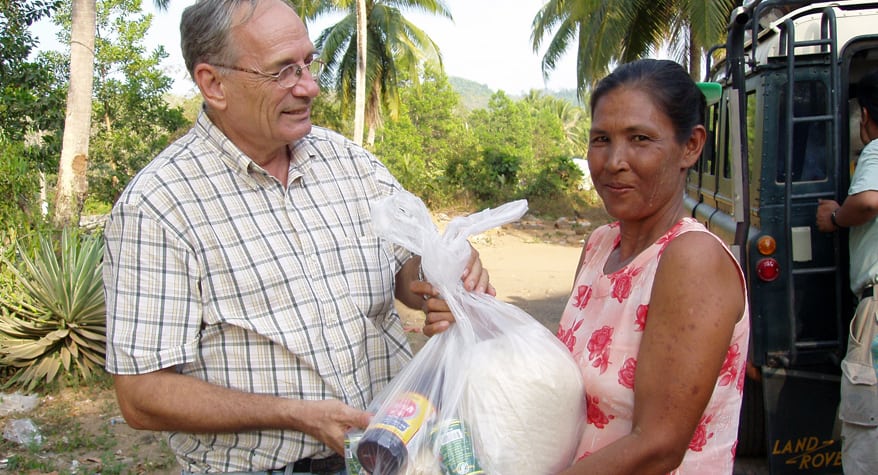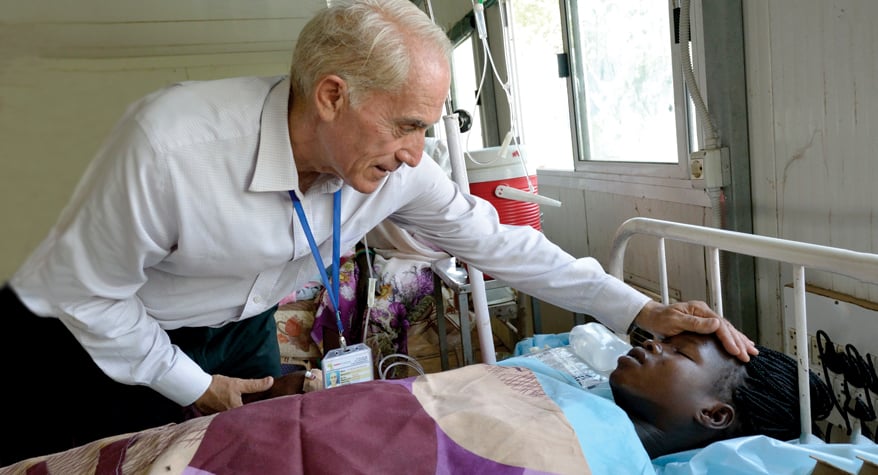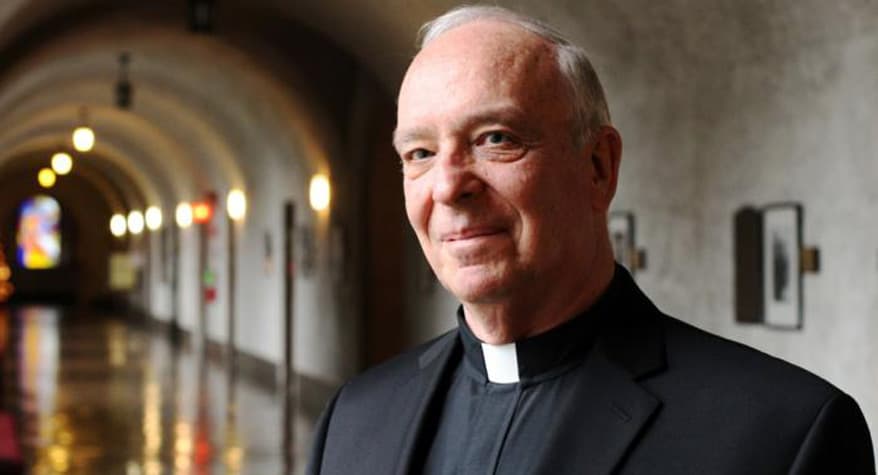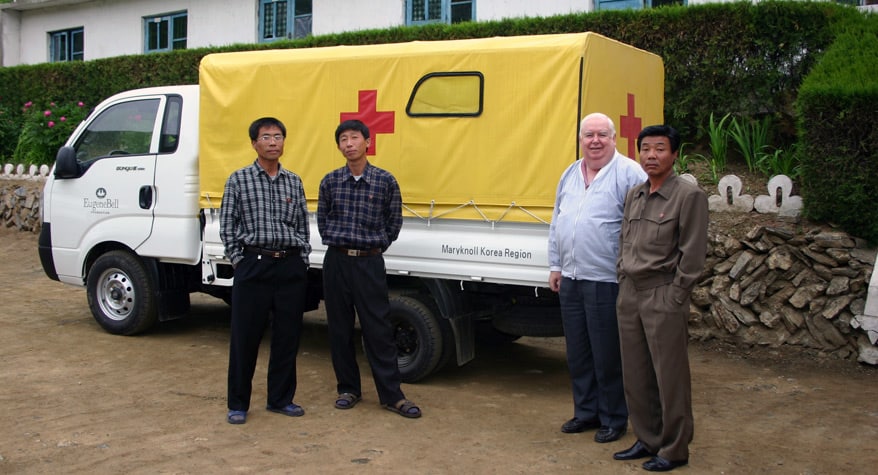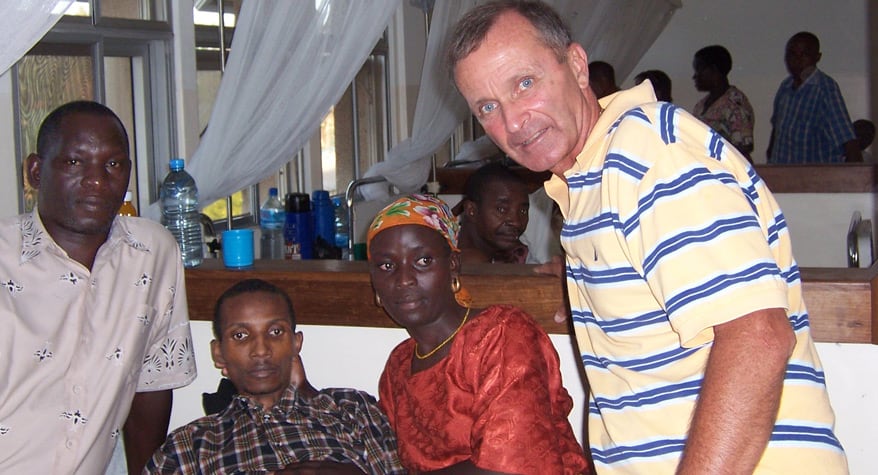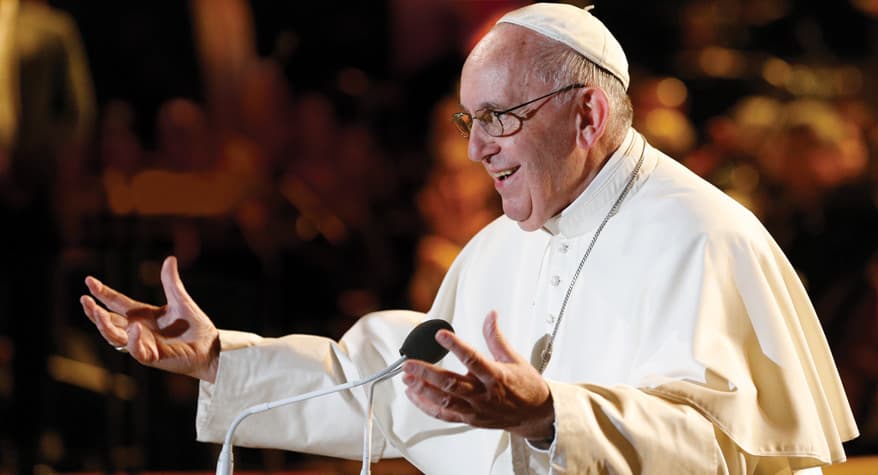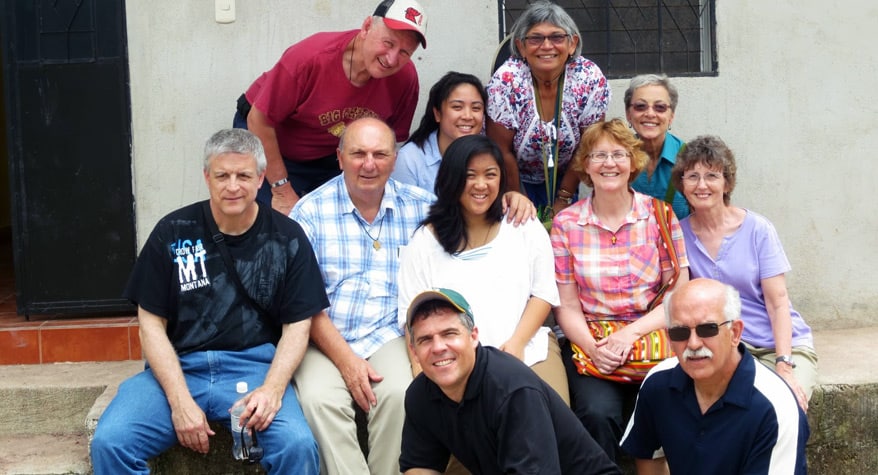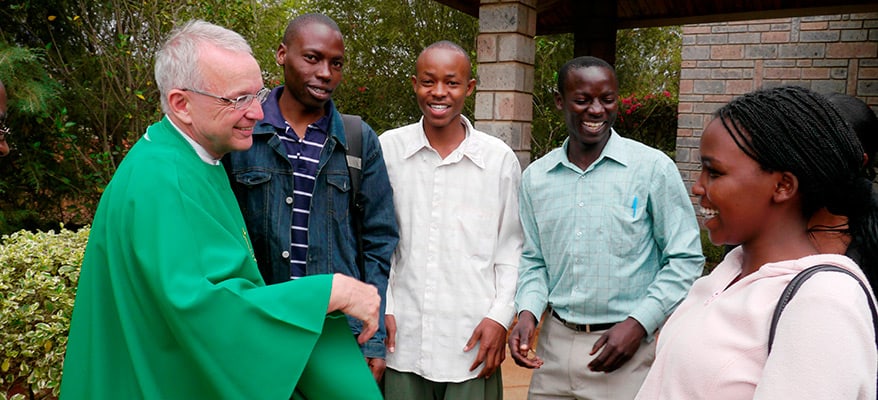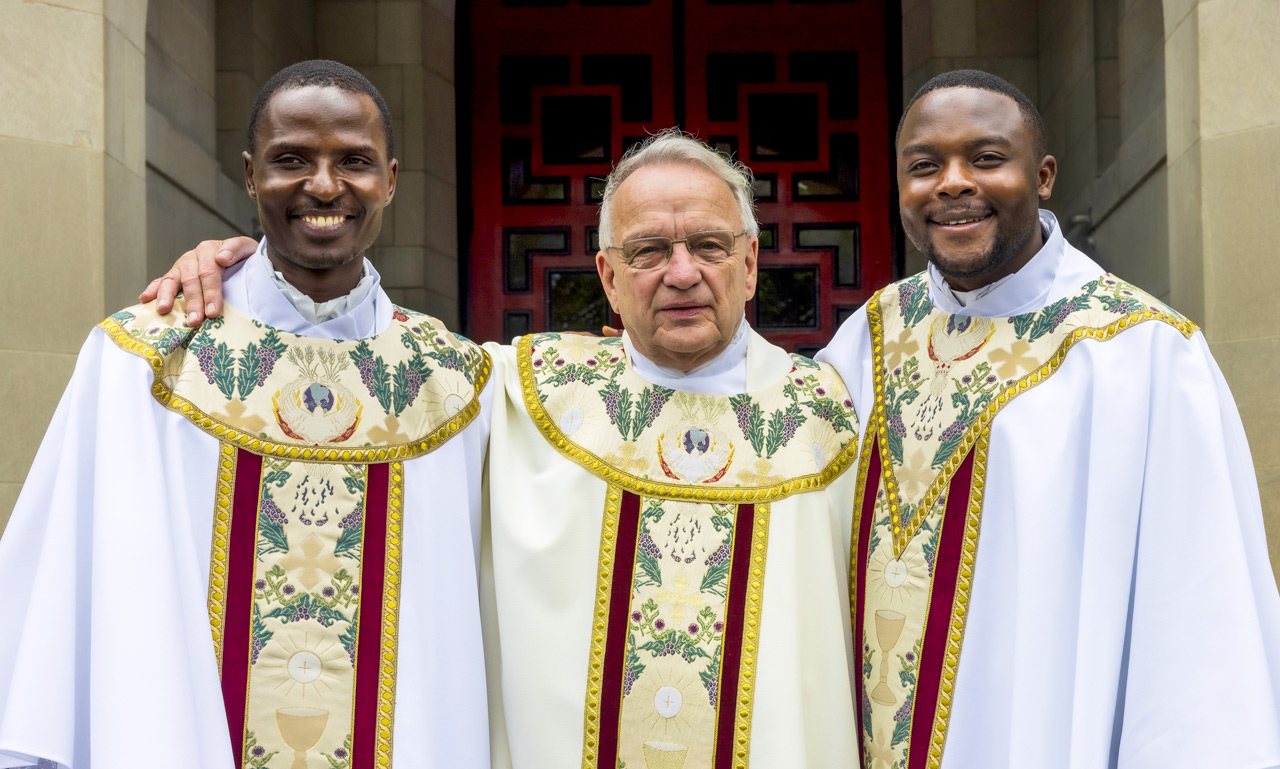Of Wind and Water
Working with the People to Counter Thirst
Growing up in rural Minnesota in the 1930s, Daniel Ohmann was well acquainted with the iconic windmills that dotted almost every farm on the prairie. His father owned the local hardware store and was responsible for installing many of the windmills that pumped water before electricity reached the area.
Years later, as a Maryknoll priest in Tanzania, Ohmann was on his way one morning to say Mass at an outstation chapel when he stopped to give a ride to a woman carrying on her head a five-gallon bucket of water from a river six miles from her home. Moved by her labor, the missioner remembered his childhood.

A Maryknoll priest draws on his Midwestern heritage to bring water to parched African villages
“You don’t need to be here long to see that water is the number one need in this part of Africa,” explains Ohmann, who has served the Ndoleleji Parish on the arid plains of Tanzania’s Shinyanga district since 1967, including being pastor there for 15 years.
Windmills are in Ohmann’s blood and it was a logical step for him as a young missioner to serve his community in Africa with water pumped by wind. Over the years 20 windmills have been installed to pump water to 18 villages, each filling a 2,000-gallon concrete tank. Two of the windmills irrigate the Ndoleleji Mission garden and orchard, providing fruits and vegetables all year round. Villagers come on foot or with donkeys to the village tanks to collect the water, paying two cents to fill a five-gallon container (recently raised from one cent) to cover running costs.
The first two windmills came from Ohmann’s hometown of Greenwald, Minn. On home leave in 1969, he was describing the need for water in Africa to his father and discussing the idea of windmills while enjoying beers at a local bar with some area farmers. Then one of the farmers said, “He can have mine; I’ve switched to electricity!”
That summer Ohmann and his father disassembled the two windmills, crated them and shipped them to Ndoleleji, where they were promptly installed. They are still pumping. As the project grew, Ohmann and his family purchased other windmills from Nebraska and more recently from Australia and South Africa. Ohmann installed the first four windmills himself with the help of a Dutch volunteer.
The need for water grew dramatically as a result of Tanzania’s socialist “villagization” program, Ujamaa, that started in the early 1970s, when people were moved to newly created villages with about 2,000 inhabitants in each. The government’s aim was to make all homes accessible to water, schools and hospitals. While one positive result of Ujamaa has been to make Tanzanians proud of their nation over and above their tribe, thus avoiding the terrible consequences of tribalism suffered in other African countries, there still were many teething problems with Tanzanian socialism.
Ohmann describes how his project fell foul to the villagization progam and its inherent inefficiencies in the 1970s. The windmills were promptly nationalized and within a year all became idle for lack of proper service—except the one for the mission garden, which the priest serviced himself.
The villagers are required to dig the trenches to bury the two-inch plastic piping that carries the water from the windmills to the tanks. The run averages one mile but in one case stretches for four miles.



Today a fully installed system costs about $20,000, compared to about $5,000 in the 1970s, and Ohmann has often relied on personal endowments to buy them. Ohmann’s sister and brother-in-law purchased the first one, years ago, when their daughter was killed in a car crash and they used the insurance money for a windmill as a life-giving memorial. A New York nun did the same with her parents’ inheritance. Much of the money has come from Minnesota farmers who well remember how valuable their windmills were in the old days.
Despite their obvious benefits, the windmills were plagued for years with problems, Ohmann says. From the start people dug up the pipe and used it to make bracelets. Sometimes nuts and bolts were removed from the towers so farmers could repair their ox plows. One windmill tipped over as a result. Money was stolen from water sales until water meters were installed at the tanks and the income from water sales doubled. Then there were problems importing equipment, tax clearances and other bureaucratic headaches.
Things are now running smoothly, Ohmann says. Four men are employed full time maintaining the system, and each village employs a seller, who earns one third of the sale price of the water. As the windmill towers have become commonplace, silently pumping from the water table to the village tanks, the health benefits have multiplied.
Ohmann says the water is safe to drink. “The water is filtered through miles of sand in the riverbed. My dad told me, ‘You can drink urine once filtered through 25 feet of sand.’ I never tried it, but I believed him!”
The missioner says all the windmills pump water from riverbeds because deep wells bring only salty or alkaline water, and sometimes hot water. The only other sources of water are the rainwater collected in rivers, water catchments, small dams or from corrugated tin roofs. “We’ve tried all of them,” Ohmann says. People enjoy better health in the villages served by clean water. Diarrhea and cholera once common are now rare.”
Ohmann attests to drinking the water without treatment for 40 years and says he’s never suffered a problem.
